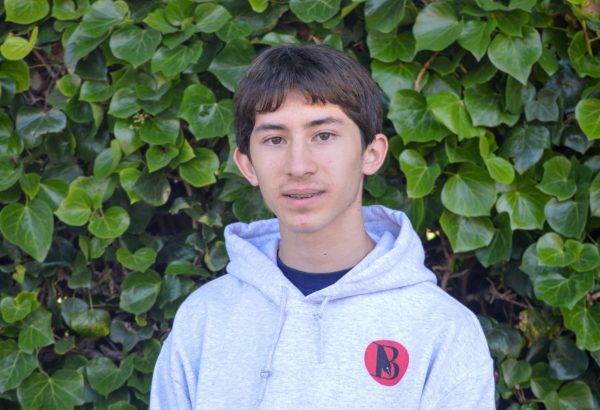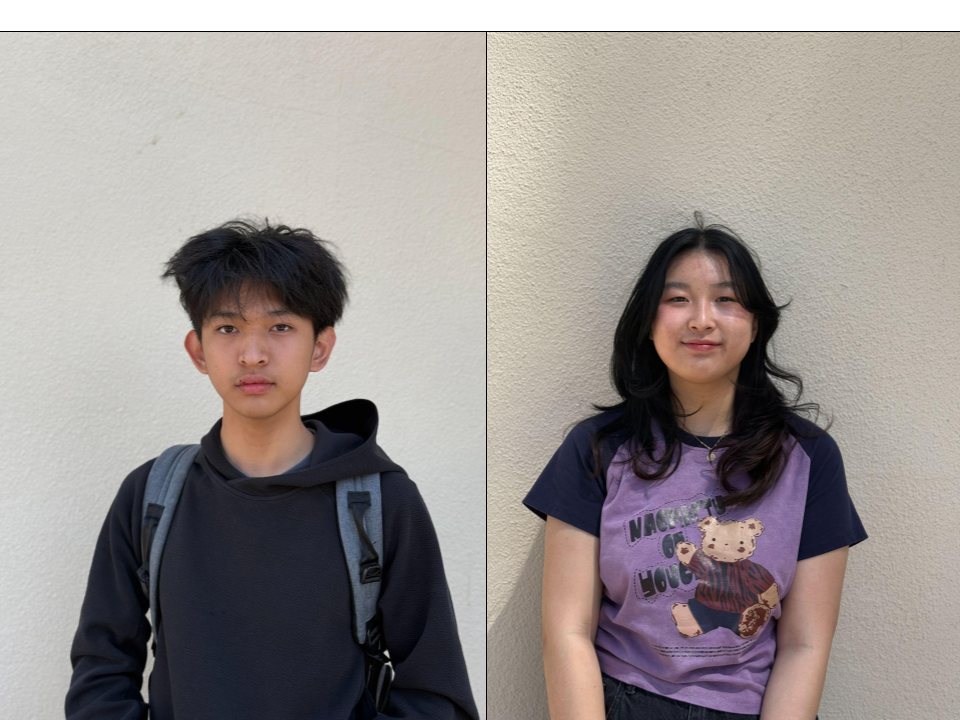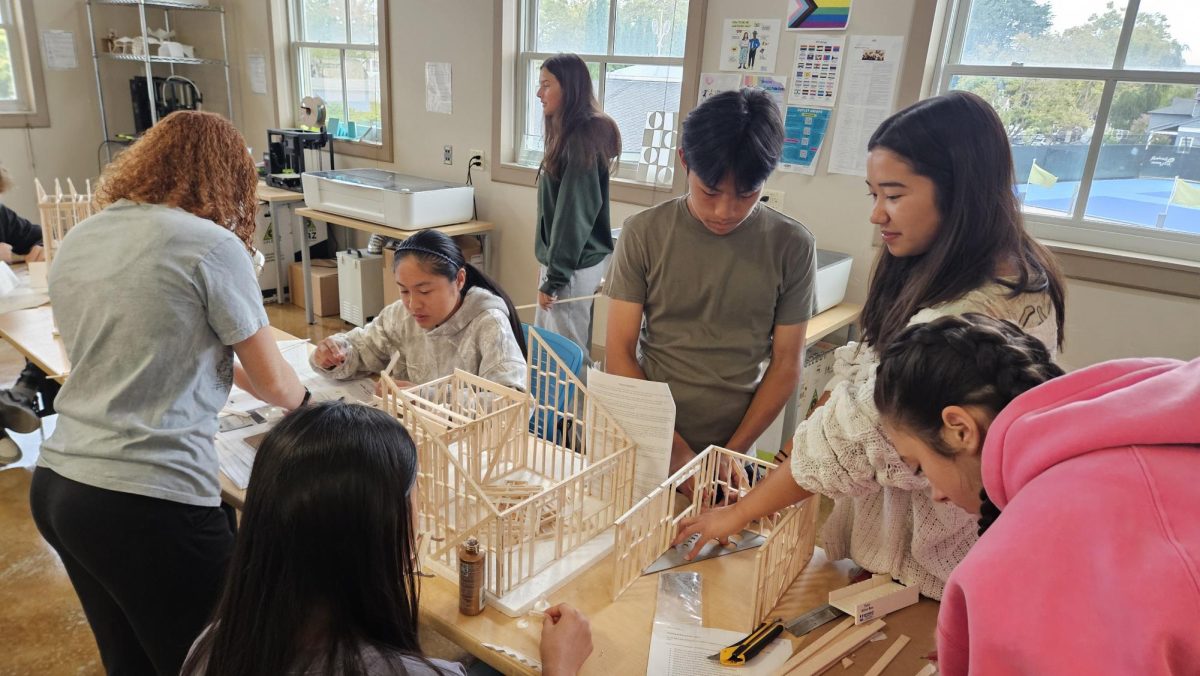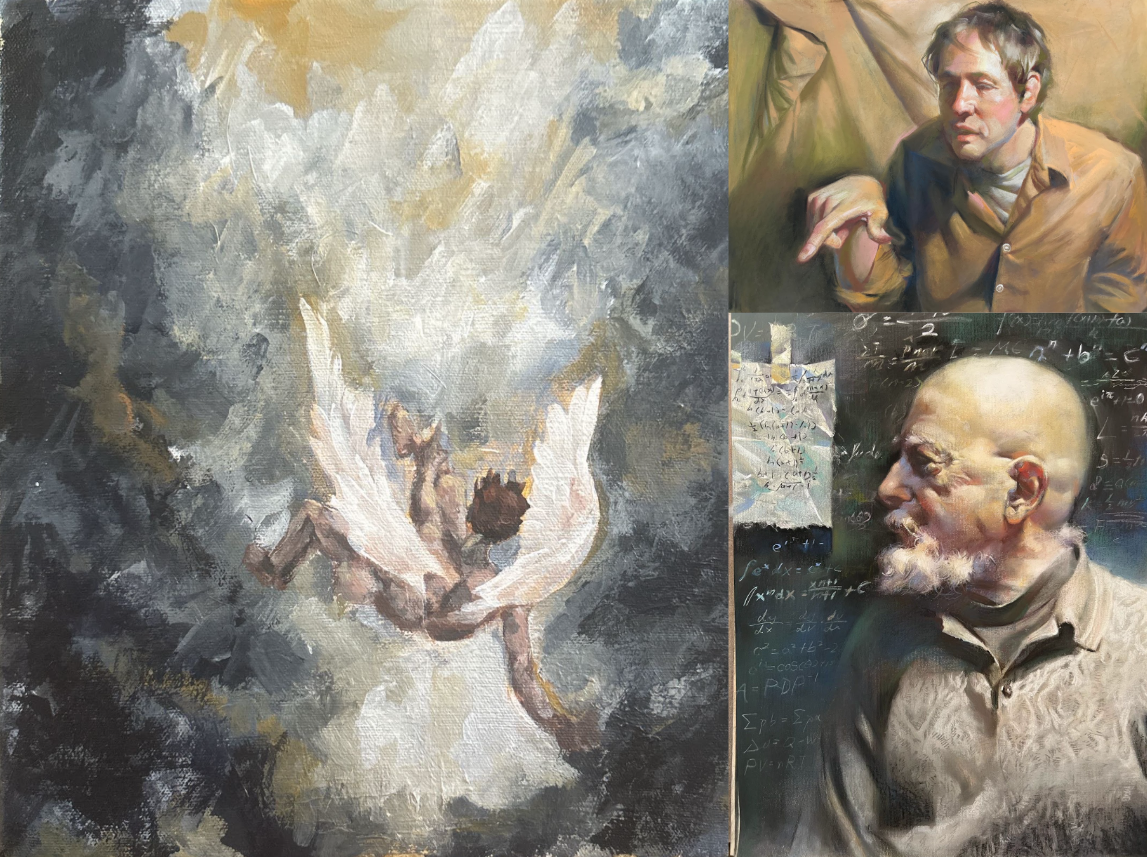
Art is a lot of things — to some a language, to others a fight, and infinitely more. It is also an Advanced Placement (AP) exam: in Burlingame’s AP Studio Art class, students develop a portfolio of 12 art pieces focused on a central theme, as well as five pieces displaying technical mastery, and submit it to the College Board. Juniors Lucas Zhu and Emily Meng share their perspectives on visual art and how it ties to their portfolios.
Having lived in China until middle school, junior Lucas Zhu’s first language was Chinese. His second language, arguably, was art — that was when he moved to the United States.
“After I got here, I was able to spend more time in art, because I kind of had a language barrier. I [didn’t] really know the language before I was here, so art became a medium of my expression,” Zhu said.
Zhu began learning visual art when he was three or four, taking classes and private lessons on animation and anatomy. During his late elementary school years, he received an anime art certificate from the China Central Art Academy. He continued drawing and painting on his own, gaining technical knowledge in color theory, acrylics, charcoals, and most recently, oil painting. This year, Zhu enrolled in AP Studio Art.
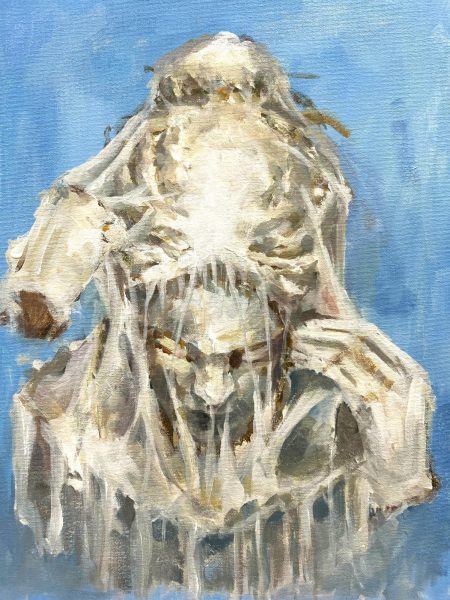
Zhu’s portfolio centers around the dichotomy of what he refers to as the “form” and the “essentials”: what’s visible on the outside compared to what lies beneath. It was an idea he borrowed from Neo-Confucianism, highlighting his philosophical approach to art.
“I was growing up with a lot of traditional cultural readings and literature, a lot of them were related to philosophy,” Zhu said. “[They] discussed the relationship between essentialities and emotions and what people think, and how that relates to your pursuit, your desires… So that kind of inspired me.”
The first piece in Zhu’s portfolio is a skeleton with anthropomorphic bones. As he dives deeper into his portfolio, he incorporates muscles, skin, shadows, and color, bridging the divide between the buried “essentials” and the external “form” of a human body. He then moves into more abstract and symbolic territory, one example being an unfinished painting of a sculpture trying to remove a cloth from over its head. To Zhu, this represents the struggle of navigating a constant stream of information and finding substance in the modern age.
“I often like to dive into the more of the moral debate side of the problem and consider unique aspects,” Zhu said. “… Why would I have this thought? Why would I have this information? By having these thought processes, [I gain] a lot of understanding of not just myself, but how I understand the world. And I feel like throughout the process of my art creation, I embed all these ideas and opinions into art.”
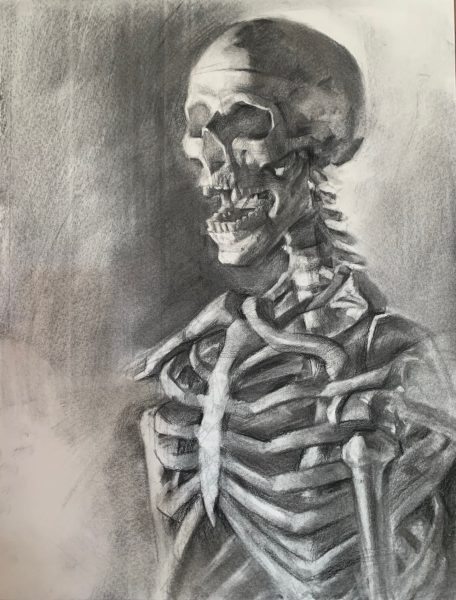
In 2024, Zhu received the Gold Key award from the Bay Area regional Scholastic Art and Writing contest, which received over 6,700 submissions that year. One of his two submitted pieces was called “Power Point,” and deals with themes of uncertainty about the future. This piece aligns with a common theme of Zhu’s art: an emphasis on accurately portraying abstract ideas.
“I’m a pretty strange artist. I will complete the first 80% of the painting in a short amount of time — that often would just take me two or three hours. And for the rest of the 20%, which is the polishing, it’s actually a really painful process,” Zhu said. “Often, a lot of people hate doing all the perspective work, the bigger elements, the beginning, but they enjoy the polishing stuff… At that point, when I [feel] the idea is already conveyed, the rest of the difficulty is just aesthetic appeal.”
His focus on the impression of art as opposed to the finer details echoes his curiosity for art’s unique sense of subjectivity.
“It’s finite, but abstract at the same time. Everyone sees the same thing, but they can have their own interpretations on the same piece of art,” Zhu said. “I think that’s one thing that’s really amazing about it.”
Junior Emily Meng’s recent journey through visual art, a discipline often rich with intricate technique and detail, is, in a sense, a battle against herself. Also a junior taking AP Studio art, Meng’s extended portfolio focuses on how perfectionism can negatively affect the individual.
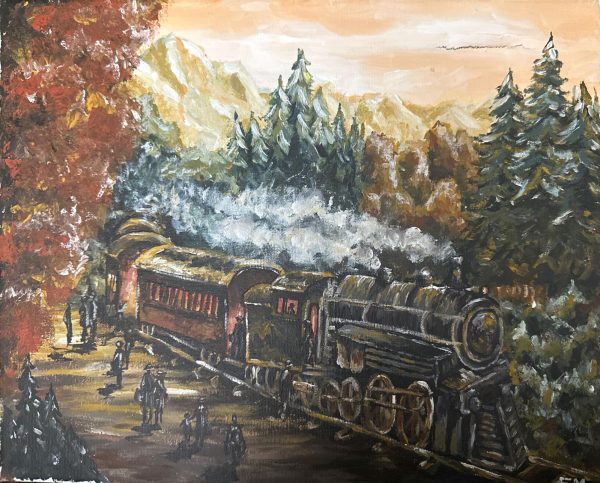
“Perfectionism to an extreme degree sort of starts to affect your self-worth,” Meng said. “It’s really damaging for the individual, and it can affect how you see yourself and the work you put out.”
The specific subjects of each painting vary. Some focus on ideas from mythology — such as the painting of Icarus flying too close to the sun — while others reflect more abstract ideas. The throughline in her portfolio is her sense of self-awareness, technique, and approach: reflecting the message of overcoming perfectionism, each piece tries to be a little more abstract and free-flowing than the last.
“I’ve been trying to loosen my brushstrokes and make it a little more abstract and less detail-oriented,” Meng said. “It’s just something I feel like I would be able to work on for a while, and something interesting to explore. I liked it because it wasn’t just like something you could only portray subject-wise — you can sort of use technique and materials to reflect what you want in a way that makes sense.”
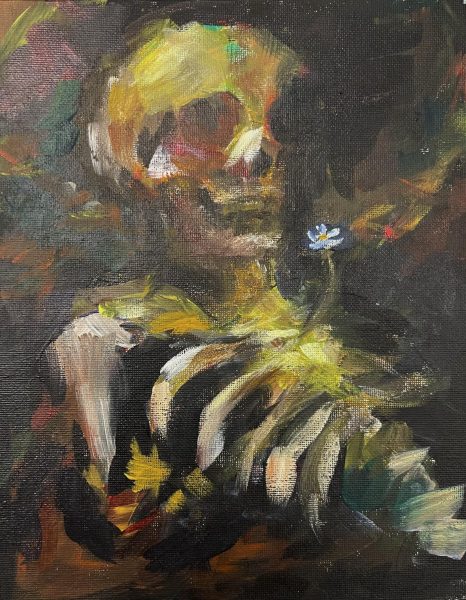
Meng has been pursuing art for many years, and took painting lessons before joining the AP Studio Art class. The class has helped her work on some of her favorite parts of the technical process — color-mixing and creating contrast — but it has also helped her focus more on the fun aspect.
“[My favorite part of the process is] just having more fun with it, and being less worried about making it look perfect or getting a good score,” Meng said. “… And in general, definitely being more creative and having fun while painting and not just doing it to prove something.”
In this way, Meng’s passion for art is a balance between intricate technicals, abstract symbolism, and, more recently, the self-acceptance to overcome perfectionism. As she makes the finishing touches on her portfolio, Meng reflects on how these ideas have come to define her art experience both now and going forward.
“I think I do want to work a bit more on the form and getting better at structure and the more technical parts of art, while still maintaining the fun of it. I feel like that can be a little bit harder for a lot of people, but I think that’s really interesting,” Meng said.
Your donation will support the student journalists of Burlingame High School - CA. Your contribution will allow us to purchase equipment and cover our annual website hosting costs.
